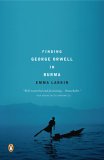Summary | Excerpt | Reviews | Beyond the book | Read-Alikes | Genres & Themes | Author Bio

Shadow of the Silk Road records a journey along the greatest land route on earth: Out of the heart of China into the mountains of Central Asia, across northern Afghanistan and the plains of Iran and into Kurdish Turkey.
Shadow of the Silk Road records a journey along the greatest land route on earth. Out of the heart of China into the mountains of Central Asia, across northern Afghanistan and the plains of Iran and into Kurdish Turkey, Colin Thubron covers some seven thousand miles in eight months. Making his way by local bus, truck, car, donkey cart and camel, he travels from the tomb of the Yellow Emperor, the mythic progenitor of the Chinese people, to the ancient port of Antioch—in perhaps the most difficult and ambitious journey he has undertaken in forty years of travel.
The Silk Road is a huge network of arteries splitting and converging across the breadth of Asia. To travel it is to trace the passage not only of trade and armies but also of ideas, religions and inventions. But alongside this rich and astonishing past, Shadow of the Silk Road is also about Asia today: a continent of upheaval.
One of the trademarks of Colin Thubron's travel writing is the beauty of his prose; another is his gift for talking to people and getting them to talk to him. Shadow of the Silk Road encounters Islamic countries in many forms. It is about changes in China, transformed since the Cultural Revolution. It is about false nationalisms and the world's discontented margins, where the true boundaries are not political borders but the frontiers of tribe, ethnicity, language and religion. It is a magnificent and important account of an ancient world in modern ferment.
Thubron's words tell a thousand pictures, as he conjures in the reader's mind the people and places of today and yesterdays long past. To compare Thubron's writing to most travel books is to compare the beautifully crafted treasures inside the museum to the tawdry baubles being hawked on the museum steps...continued
Full Review
(740 words)
This review is available to non-members for a limited time. For full access,
become a member today.
(Reviewed by BookBrowse Review Team).
The Silk Road (map) starts at the western gate of old Changan in Xian which, in the Tang dynasty (618-907 AD), was the greatest city in the world. The Xian municipality commissioned a red sandstone sculpture of twice life-size camels in commemoration, but the site is now engulfed by a supermarket - so the camels have been relocated to a traffic island!
Nobody in ancient times spoke of the Silk Road; the term was coined by 19th century German geographer, Friedrich von Richthofen, who termed it the seidenstrassen; and it isn't a single road either, but a "shifting fretwork of arteries and veins" stretching from Xian to the Mediterranean at Antioch, which very few traveled in full - instead, traders traveled lengths of the road "in an endless,...
This "beyond the book" feature is available to non-members for a limited time. Join today for full access.

If you liked Shadow of the Silk Road, try these:

by Edward Beauclerk Maurice
Published 2006
As spare, gleaming, and exhilarating as the Arctic wastes and the gentle, stoic Eskimos who had mastery of this realm. His translucent prose is a sparkling and moving record of a bygone way of life.

Finding George Orwell in Burma
by Emma Larkin
Published 2006
A brave and revelatory reconnaissance of modern Burma, one of the world's grimmest and most shuttered police states, using as its compass the life and work of George Orwell, the man many in Burma call simply "the prophet"
Knowledge is of two kinds. We know a subject ourselves, or we know where we can find information on it.
Click Here to find out who said this, as well as discovering other famous literary quotes!